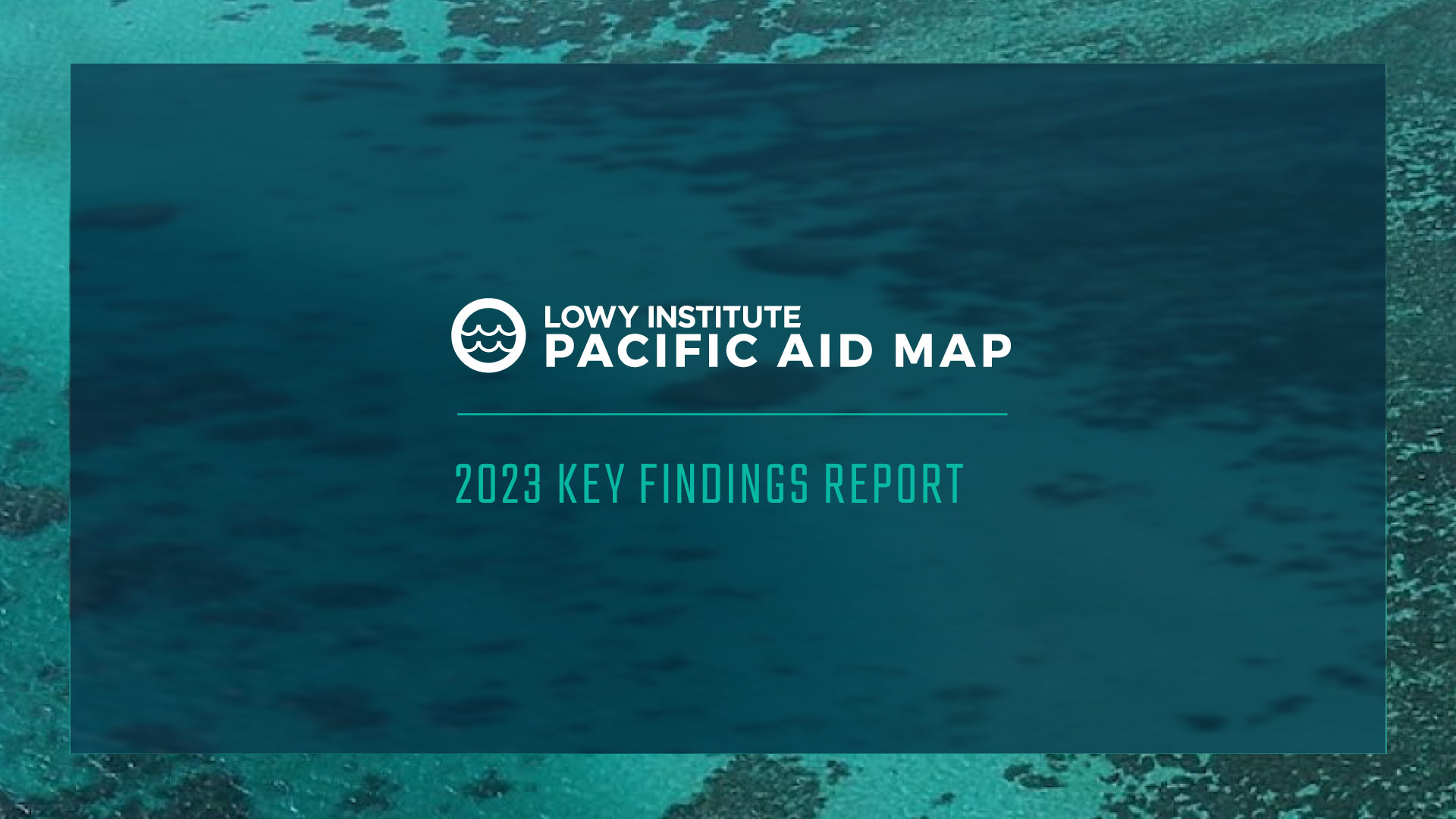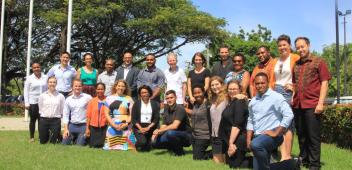Pacific Aid Map 2023 - Key Findings Report
The annual Pacific Aid Map — launched by the Lowy Institute in 2018 — is an analytical tool designed to improve aid and development effectiveness in the Pacific Islands region. It seeks to do this by enhancing the transparency of Official Development Finance (ODF) flows to Pacific Island states. By promoting greater transparency, the Lowy Institute hopes to increase coordination, improve accountability, and strengthen decision-making and policy debate on aid and development in the region.

- The Pacific Islands received more than $40 billion in ODF between 2008 and 2021, with development assistance playing a larger role in the Pacific than any other part of the world.
- Despite record ODF in 2021 of $4.8 billion, grant financing has been relatively stagnant while there is a rising reliance on loans for meeting the Pacific’s considerable financing needs.
- Australia is the largest donor in the Pacific, at about 40% of total ODF, followed at a distance by the Asian Development Bank, China, New Zealand, and Japan.
- China’s financing has gone from loud and brash to a self-styled strategy of ‘small and beautiful’, ushering in
a new trend of downsized, more politically targeted ODF. - Multilateral development banks led the response to the pandemic crisis in 2020, but in 2021, it was Australia and Japan that dramatically ramped up their ODF support.
- Direct budget support to Pacific Island countries has surged, increasing from an annual average of $374 million prior to the pandemic to $2.1 billion in 2020 and 2021.
- The Australian Infrastructure Financing Facility is reshaping regional development financing, with infrastructure set
to increasingly eclipse health and education as major donor priorities. - Australia has become the leading source of loans. While providing much needed development support, this comes at a time of elevated debt sustainability risks in the Pacific.
- Climate development financing has grown steadily but remains well below that needed, especially for adaptation. Japan leads the way with the greatest focus on climate projects.
- New data for this edition show donors have collectively been less focused on gender equality than in other regions but this is set to change given ambitious Australian targets.
The annual Pacific Aid Map — launched by the Lowy Institute in 2018 — is an analytical tool designed to improve aid and development effectiveness in the Pacific Islands region. It seeks to do this by enhancing the transparency of Official Development Finance (ODF) flows to Pacific Island states. By promoting greater transparency, the Lowy Institute hopes to increase coordination, improve accountability, and strengthen decision-making and policy debate on aid and development in the region.
This sixth annual edition of the Pacific Aid Map encompasses the period from 2008 to 2021. It includes data on more than 30,000 projects carried out by 82 development partners, totalling more than $40 billion in ODF. The research includes data on 14 recipient states of the Pacific Islands region: Cook Islands, Fiji, Kiribati, Marshall Islands, Federated States of Micronesia (Micronesia), Nauru, Niue, Palau, Papua New Guinea (PNG), Samoa, Solomon Islands, Tonga, Tuvalu, and Vanuatu.
The Map synthesises millions of data points from official reporting mechanisms and databases. It combines this with information from thousands of publicly available documents including annual reports, financial statements, budget documents, news media reporting, and social media sources. The resulting database is the most comprehensive account ever create of both committed and disbursed ODF in the Pacific Islands region.
This 2023 Key Findings report includes an analysis of the Pacific’s evolving development finance landscape and a series of profiles examining the development financing trends in each of the 14 Pacific Island countries covered in the database.
To see more and use the fully interactive features of the Pacific Aid Map, visit pacificaidmap.lowyinstitute.org


